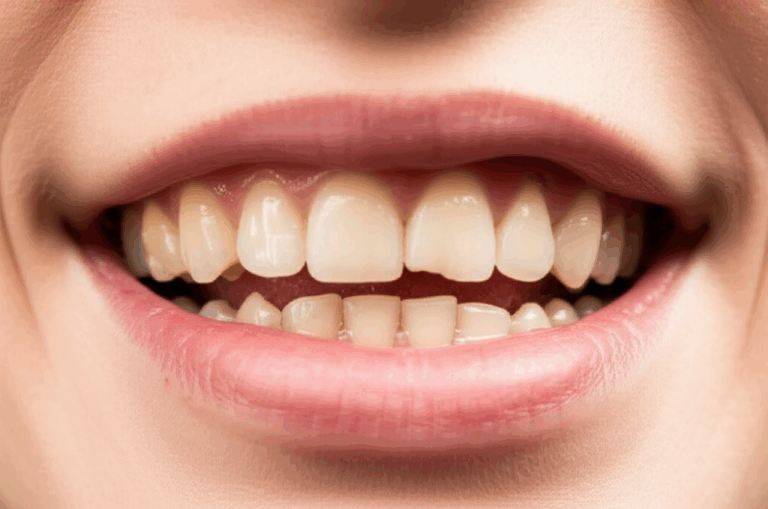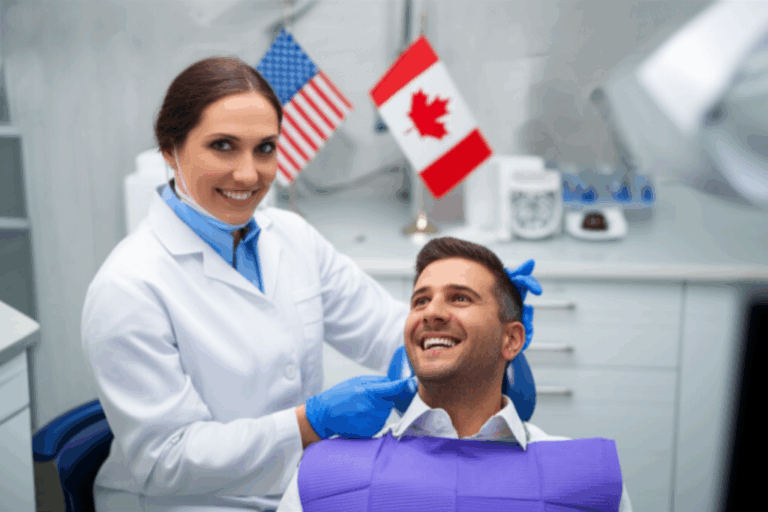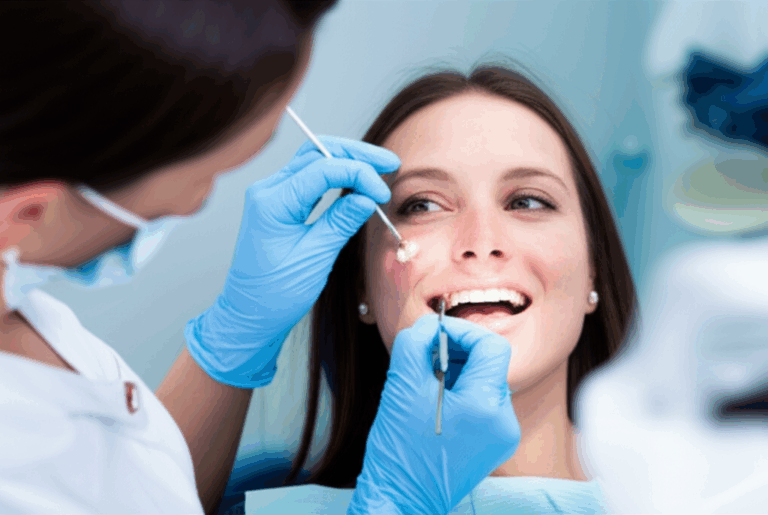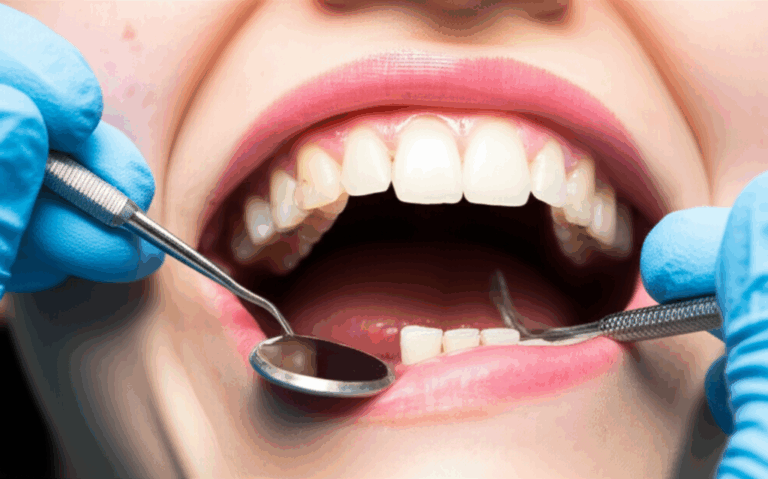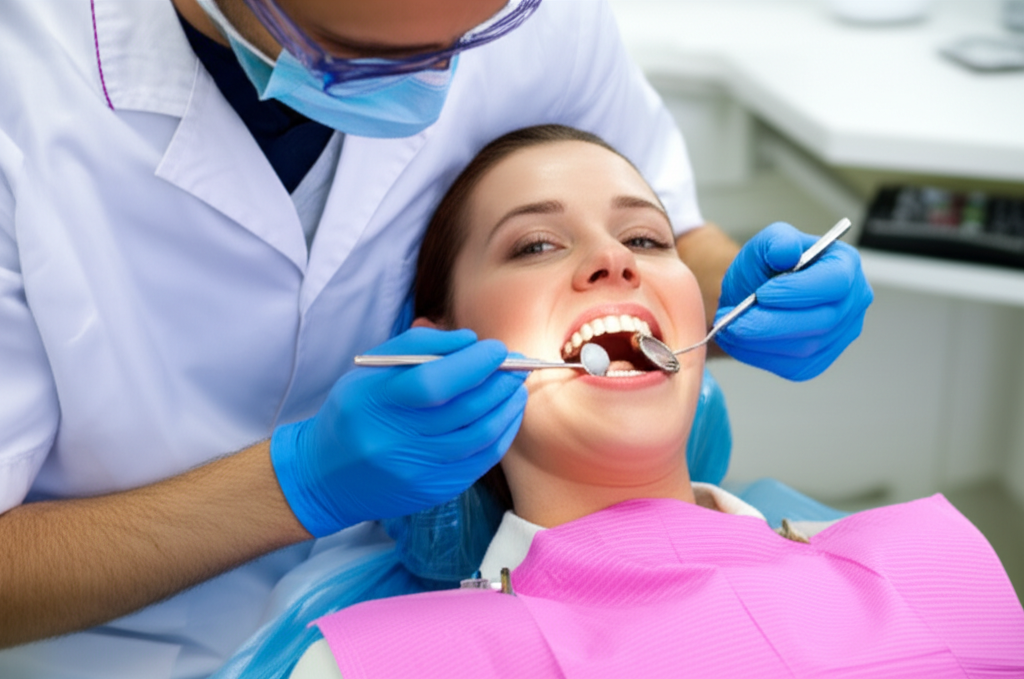
Should Adults Get Fluoride at the Dentist? My Real-World Insight and Expert Guidance
Table of Contents
Introduction: The Evolving Role of Fluoride in Adult Dental Care
I used to think, like lots of people, that fluoride treatments were just for kids. Every parent’s heard a dentist say, “Your child needs a fluoride treatment to protect those new grown-up teeth.” For a long time, I thought, “I’m a grown-up—I brush my teeth, I use floss, I don’t need to worry about fluoride anymore.”
But I changed my mind after I got a few fillings and realized my teeth weren’t as strong as before. Suddenly, when my dentist asked, “Want a fluoride treatment today?” it didn’t feel like just a random offer.
Should adults get fluoride at the dentist? From what I’ve been through, I’d say “it depends”—but for lots of us, it’s actually a really good idea. Let’s look at why, when, and how fluoride can make a difference for grown-ups.
In this article, I’ll lay out the good and bad, who might need fluoride, how it works, what the treatment is like, and how to figure out what’s best for you. I’ll also talk about what the experts say, share some easy tips, and tell you about a few “ah-ha!” moments I had along the way.
Fluoride 101: What It Is and How It Helps Adult Teeth
Before I started caring more about my mouth, I knew fluoride was “good for teeth.” But what does that mean, especially when you’ve had your adult teeth for years?
What Exactly Is Fluoride?
Fluoride is a natural mineral that makes the hard outer part of your teeth (enamel) stronger. You can find it in many city water supplies, in some foods, and in things like toothpaste and mouthwash.
But the reason fluoride is so helpful for adults is because of what it does to protect and repair our teeth.
The Real Benefits of Fluoride for Adults
Here’s what I’ve seen myself and learned by talking to my dentist:
1. Stopping Cavities Before They Start
Even if you brush and floss well, adults can still get cavities—especially as your eating habits change or your health isn’t perfect. Fluoride helps stop cavities by slowing down the loss of minerals from your enamel and helping put them back in. Think of it like patching up tiny weak spots before they get worse.
A big review of research found that fluoride treatments at the dentist can lower new cavities in adults by about 37%. After I started getting regular treatments, I noticed I wasn’t getting new spots nearly as often.
2. Protecting Exposed Roots
As gums pull back with age (or from gum disease), more of the root of the tooth is out in the open. And roots aren’t covered by hard enamel like the top of the tooth. This makes “root cavities” way more likely. Getting fluoride treatments, especially varnish, really protects these weaker spots.
3. Helping With Tooth Sensitivity
If you get a zing when you drink hot coffee or eat ice cream, you know about sensitive teeth. Fluoride can help plug up the tiny holes in your teeth that let stuff get to the nerves, making things less painful. After just a few varnish treatments, I could eat and drink cold or hot things with less trouble.
4. Making Weak Enamel Stronger
Fluoride makes your enamel tougher against acids. That’s important if you like citrus, wine, or soda, since those can soften your enamel and wear it away faster.
5. If You Have Dry Mouth
Some medicines, health problems, or getting older can cause dry mouth. Saliva protects against cavities, so less spit means a higher risk. When I got dry mouth from some medicine, my dentist told me to get fluoride more often and it helped.
6. If You Have Dental Work (Braces, Crowns, Bridges)
Have you had braces as an adult? Crowns, bridges, or dental implants? Fluoride keeps cavities away from the edges of these, and I wish I’d known that before I got my first cavity around a crown.
Quick story: My friend who kept getting cavities by old fillings now gets fluoride at every checkup. Her dentist says that’s a big reason she doesn’t need as many replacements anymore.
Professional Fluoride at the Dentist vs. At-Home Products
You may be thinking—aren’t my toothpaste and mouthwash with fluoride at home enough? Why bother with the strong stuff at the dentist?
Topical vs. Systemic Fluoride: Easy Version
There are two ways your teeth get fluoride:
- Systemic: Fluoride you swallow (like in water) can help form strong teeth as they come in, but that’s not really helpful after you’re a grown-up.
- Topical: Fluoride that goes straight onto your teeth—this is what in-office and at-home products do.
How Is Professional Fluoride Different?
1. Types of Professional Fluoride
At the dentist, you’ll usually get:
- Varnish: The most common for adults. The dentist paints it on your teeth and it dries fast; you don’t have to wait long to eat or drink. This is what I get now—it takes hardly any time and you’re done quick.
- Gels and Foams: Used in some cases. They’re put in small trays on your teeth, you wait a few minutes, then spit out what’s left.
2. Higher Strength = More Power
The fluoride in dentist treatments is way stronger than toothpaste or the mouthwash you buy at the store. Think of it like pouring a whole bucket of water versus just a squirt.
3. Done Right, Just For You
The dentist or hygienist puts it right where you need it, watches for problems, and answers your questions on the spot.
At-Home Fluoride: Still Needed, But Not Enough For Some
- Toothpaste and Rinses: These are great for keeping things steady every day. I never skip my fluoride toothpaste.
- Prescription Fluoride: If you’re at really high risk, the dentist might give you a stronger paste for home. I tried this when my risk went up, but the dentist’s varnish still seemed most helpful.
From my own experience, using fluoride toothpaste every day and getting the dentist’s help every so often is the best combination. It’s kind of like wiping your shoes every day, then taking them to a shoe cleaner for a deep clean sometimes.
Do You Need Fluoride? Spotting the Signs and Risk Factors
This is where it gets real. Not every adult truly needs professional fluoride, but more of us could use it than we think.
Are You at High Risk for Cavities?
I never thought I was “high risk”—until I got two new cavities in a row. Here’s what to check for:
Signs You’re at Higher Risk
- Lots of Cavities Before: If you’ve already had a bunch, you’ll likely get more.
- Gum Problems or Receding Gums: Roots showing are more at risk for decay.
- Dry Mouth: From medication, health problems like diabetes, or even treatments like cancer care.
- Braces or Tooth Straighteners: Even as a grown-up, these can trap food and sugar.
- Many Sugary or Acidic Foods/Drinks: Soda, juice, candy—these add up!
- Not Great With Brushing/Flossing: I had years where I slacked off, and it cost me.
- Dental Work: Fillings, crowns, bridges—they can get decay around them.
- Tobacco or Heavy Alcohol Use: Both dry your mouth and raise risk.
If you check off a few of these, think about getting professional fluoride.
Lower Risk: When You Might Not Need It Often
If you’re careful with brushing, rarely eat sugary foods, and never get cavities, you may not need it so much—but life changes (new meds, getting older, stress) can change your risk fast.
Your Dentist Can Help
Your dentist or hygienist can help you figure out your real risk in a quick chat about your food habits, history, and how you take care of your teeth. This made a big difference for me.
Is Fluoride Safe for Adults? Sorting Out the Concerns
People sometimes ask me—“Isn’t fluoride dangerous?” “What if I have health problems?” Here’s what I’ve found.
The Safety Story
Fluoride used by dental pros and in the right amounts is very safe. The varnish is a tiny amount placed carefully—not enough to cause any big problems.
Possible Side Effects—But Rare
- Temporary Staining: This sometimes happens with a certain type but not usually with varnish. I never got stains from it.
- Allergies: Really rare; always tell your dentist if you have allergies.
- Swallowing It: The varnish hardens quick, and the amount is tiny—at most your stomach might feel funny for a bit.
About Fluorosis
Fluorosis—white marks on teeth—only happens to kids who get way too much fluoride before adult teeth come in. Adults can’t get this from dentist treatments.
Health Problems
For almost all grown-ups, dentist fluoride is safe. But if you have special health worries or take lots of meds, ask your doctor and dentist to be sure.
What The Experts Say
Big groups like the American Dental Association, Centers for Disease Control and Prevention, and the World Health Organization all say fluoride can help adults avoid new cavities, especially if you have higher risk.
All that means you can feel good about saying “okay” to dentist fluoride if they suggest it.
The Cost of Fluoride Treatments and Insurance Coverage
Let’s talk money. No one likes paying more at the dentist. Is it worth it?
What Does a Fluoride Treatment Cost?
Where I live, a fluoride treatment usually costs between $20 and $50, depending on the dentist. Some offices include it as part of your cleaning; some charge extra.
Insurance: Will They Cover It?
Some dental insurance pays for fluoride for certain adults, mostly if you’re at higher risk for cavities. Some stop paying after a certain age, like 18 or 26. My plan pays for it twice a year if my dentist says I need it, but I always check first. If you’re not sure, ask your insurance.
Is It Worth It?
I used to wonder if it was a waste. But then I looked at how much a filling costs (hundreds), a crown (over $1000), or a root canal. Even just one cavity could cost way more than years of fluoride. For me, paying for fluoride ended up saving money and trouble.
If you have crowns or bridges, you know they’re not cheap to fix or replace. Adding fluoride is a simple way to help protect what you’ve already paid for.
If you want to know more about dental restorations or what modern dental labs are doing, china dental lab has info on today’s dental materials and ideas you can talk about with your dentist.
How to Make Your Best Choice: Talking With Your Dentist
The best thing I ever did was talk honestly with my dentist. Here’s what I ask to make sure I get good advice:
- What puts me at risk for new cavities or root problems?
- What type of fluoride is best for me? (Varnish, gel, prescription toothpaste, etc.?)
- How often do I need it? (Some adults need it twice a year, some less.)
- If I use fluoride toothpaste and tap water, do I still need this?
- How much does it cost, and is it covered by insurance?
Don’t feel shy asking questions—about safety, cost, worries, or other options. Your dentist should be happy to talk. Personalized advice is what works best.
If you’re interested in how dental treatments connect to bigger health issues or want to know more about digital dental lab choices, these places work with dentists on everything from routine crowns to complex cases—and having fluoride is even more important when you have special dental work.
Conclusion: Why Fluoride Is a Smart Move for Many Adults
If you’re wondering, “Should I get fluoride at the dentist as a grown-up?”, you’re not alone. What I’ve learned is that your own risk matters most—not just your age or old habits.
For lots of adults—especially those with past cavities, gum problems, dry mouth, braces, or a lot of dental work—dentist fluoride isn’t just for kids. It’s an easy, proven way to cut down on new cavities, protect sensitive spots, and save big money later.
Looking back, I wish I’d started sooner. It only takes a few minutes at the dentist, and it’s saved me hours of getting teeth fixed—not to mention the money.
So when your dentist offers fluoride, know it’s not just an upsell—it’s honestly one of the best, easiest ways I’ve found to keep my teeth healthy for the long haul.
If you want a second opinion about specialized dental stuff or want to read more about crown and bridge lab services or new dental materials, there’s tons of help out there—and preventive care like fluoride is just as important as new dental tech.
Here’s the main idea: Don’t wait for problems. Ask questions, find out your real risks, and use fluoride as one more tool to keep your adult smile strong. You—and your wallet—will be glad you did.

